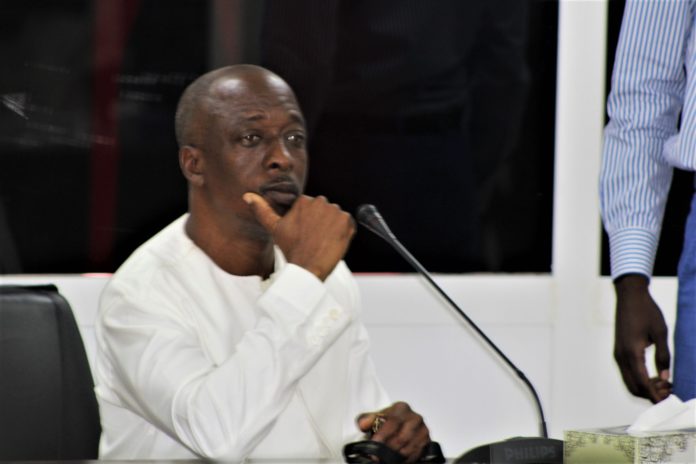By Kemeseng Sanneh (Kexx)
The Supreme Court of The Gambia, under the leadership of His Lordship Chief Justice Hassan B. Jallow, will resume sittings from the 7 to 10 April 2025. The court is scheduled to hear arguments in several high-profile cases involving constitutionality matters, human rights concerns, and political accountability and deliver landmark judgments.
One of the most closely followed cases on the Supreme Court docket is that of Yankuba Touray versus the State. Touray, a former member of the Armed Forces Provisional Ruling Council (AFPRC) junta, is making a final legal attempt to overturn his conviction and death sentence for the murder of former Finance Minister Ousman Koro Ceesay, a crime that took place in 1995. Touray was found guilty by the High Court in a historic ruling delivered by Justice Ebrima Jaiteh on July 14, 2022. His appeal to the Court of Appeal was dismissed, with the appellate judges upholding the High Court’s decision. In his appeal to the Supreme Court, Touray argues that the lower courts failed to properly assess the evidence presented by the prosecution and insists that he is innocent of the charges. He is now pleading with the five-member Supreme Court bench to overturn the judgment of the Court of Appeal and acquit him of the crime.
Another significant case set for judgment is the Kanifing Municipal Council versus the Ministry of Regional Government, Religious Affairs, and Lands. This matter involves accusations of undue interference by the Ministry in the day-to-day management and operations of the Kanifing Municipal Council. The Council is seeking legal clarity on the extent of the Ministry’s oversight authority and whether its actions violate the autonomy granted to local government authorities under the Local Government Act and the Constitution.
Also scheduled for hearing is the case filed by Almami Gibba, the National Assembly Member for Foni Kansala, and seven others against the Attorney General. The applicants are challenging the legality of the Women’s (Amendment) Act No. 11 of 2015, which criminalises the act of female circumcision. They are asking the Supreme Court to strike down Sections 32A and 32B of the Amendment, arguing that these provisions violate fundamental rights enshrined in the 1997 Constitution, including the rights to culture, freedom of expression, religion, and protection from discrimination. The plaintiffs argue that the National Assembly exceeded its legislative powers by enacting provisions that conflict with Sections 17 (1) and (2), 25 (1) (c), 28 (1) and (2), 32, and 33 (2) and (3) of the Constitution. They are seeking a declaration that the amendment is unconstitutional, null and void, and of no effect. If successful, their case would result in the reinstatement of only the original Section 32 of the Women’s Act of 2010, removing the 2015 criminal prohibitions on female circumcision.
In another politically sensitive case, civil society activists Sait Matty Jaw, Madi Jobarteh, Coach-Pasamba Jow, and Baboucarr Sufism Nyang Al-Tijani are suing the Clerk of the National Assembly, the Minister of Finance and Economic Affairs, and the Attorney General. They are challenging the constitutionality of the National Assembly’s decision to allow the Minister of Finance to table the 2025 Estimates of Revenue and Expenditure beyond the time limit prescribed by the Constitution. Relying on Section 152 (as amended), the applicants argue that the National Assembly, through the Speaker, lacked the authority to extend the deadline and that the late submission of the budget was unconstitutional. They are seeking a declaration from the Supreme Court nullifying the 2025 budget submission and deeming it unlawful and of no effect.
Also coming before the court is the matter of the Coalition of Progressive Gambia and journalist Kemeseng Sanneh, also known as Kexx Sanneh, versus the Attorney General and the Clerk of the National Assembly. This case challenges the constitutionality of the Commission of Inquiry (Amendment) Act 2023. The Amendment Act introduced changes allowing the President to grant amnesty to individuals who were banned from holding public office by a commission of inquiry. The applicants argue that Sections 19, 20, and 21 of the amended Act are in direct conflict with Sections 200 to 206 of the 1997 Constitution, which set out the legal framework for commissions of inquiry and the limits of presidential powers. They contend that the National Assembly overstepped its legislative authority by passing laws that undermine the integrity and binding nature of commission findings. The plaintiffs are seeking a declaration that these provisions are ultra vires, unconstitutional, and therefore null and void.


















